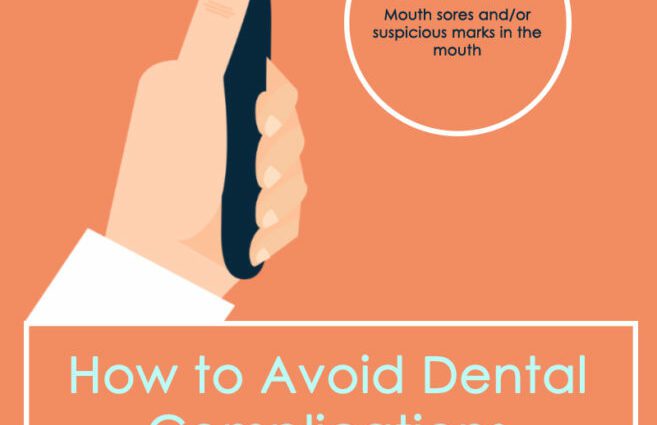Contents
Dentist: when to see him?
Dentist: when to see him?
The dentist is the specialist in dental problems. It intervenes as a preventive measure but also in the detection and treatment of dental and periodontal diseases (everything that surrounds the tooth). When should you consult it? What pathologies can it treat? Here is everything you need to know about the dentist.
The dentist: what does his profession consist of?
The dentist is a doctor who treats toothache, mouth, gum and jawbones (the bones that make up the jaw). He can intervene as a preventive measure during a follow-up consultation by administering care to reduce the risk of dental and periodontal problems, in particular through scaling. He can also intervene to detect and treat a disorder already installed.
This specialist can also provide care to repair, replace and correct positioning defects of the teeth, provided they have a specialty in orthodontics.
What pathologies does the dentist treat?
Its role is to treat ailments that affect the teeth, gums, and mouth.
Caries
The dentist treats cavities, that is, the gradual destruction of tooth tissue by bacteria. For this, it can either fill the tooth tissues nibbled by bacteria by placing a dental dressing, or devitalize the tooth (disinfect the inside of the tooth, remove the dental pulp and plug the roots) if the decay is deep and that she reached her nerves.
Tartar
The dentist removes tartar, risk factor for cavities and periodontal disease. Scaling involves passing a vibrating device on the inside of the teeth and between the teeth and the gum line. Under the effect of vibration, the dental plaque is removed to leave the teeth smooth. In addition to impeccable oral hygiene (brushing teeth at least twice a day after each meal), it is recommended to have a scaling at a dentist every six months to a year.
Placement of a crown, implant or bridge
The dentist can place a crown, an implant or a bridge. This equipment makes it possible to cover and protect damaged teeth or to replace a torn tooth. The crown is a prosthesis that the dentist places on a damaged tooth (decayed or malformed) still in place to protect it. This treatment avoids the extraction of the tooth. If a tooth is extracted, it can be replaced by a dental implant: it is an artificial root (a kind of screw) implanted in the bone of the tooth on which a crown is fixed. . The bridge is also a dental implant which is generally used to replace at least two missing teeth by resting on the adjacent teeth.
Periodontal disease
Finally, the dentist treats periodontal disease, bacterial infections that destroy the supporting tissues of the teeth (gums and bones). Periodontal pathologies evolve slowly but once established they cannot be cured, they can only be stabilized. Hence the importance of preventive actions such as regular and meticulous brushing of the teeth morning and evening (at least), the passage of dental floss between the teeth after each meal, the elimination of dental plaque by chewing chewing -gum without sugar and regular scaling and polishing of teeth in the office.
When to see a dentist?
It is recommended that you visit a dentist at least once a year to have your teeth and mouth checked. and detect any problems, but also to perform scaling and polishing of the teeth.
A consultation with a dentist is essential in case of toothache or mouth pain. The consultation time will depend on the urgency of the problem.
In case of occasional tooth sensitivity
If you are prone to occasional tooth sensitivity, your gums are red and sometimes bleed when brushing, or if a wisdom tooth pushes you in the way, make an appointment with the dentist in the coming weeks.
In case of toothache and sensitivity
If you have a pain in one or more teeth, your teeth are sensitive to hot and / or cold, you have suffered an impact on a tooth without it having been broken or you have an injury to the gum due to braces, make an appointment with your dentist in the coming days and relieve your pain with analgesics in the meantime.
In case of unbearable dental pain
If your toothache is unbearable, constant and worsens when you lie down, you have trouble opening your mouth, you have suffered a dental trauma (blow) that has broken, displaced or expelled a tooth , or caused a major lesion of the mouth, tongue or lip, you must see a dentist during the day.
In case of more serious symptoms
Call 15 or 112 if you have severe symptoms: difficulty breathing or swallowing, fever, severe, stabbing pain that does not pass with analgesics, swelling of the face or neck, red and hot facial skin, dental trauma caused by a shock to the head resulting in vomiting and unconsciousness.
What studies to become a dentist?
The dental surgeon holds a state diploma in dental surgery. The studies last six years and are organized into three cycles. In addition to this diploma, students can take a DES (Diploma of Specialized Studies) to specialize in orthodontics, oral surgery or oral medicine.










